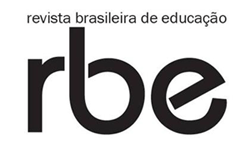ABSTRACT
To understand the training perspective proposed by the State in the education policies of the neo-developmental period (2001–2016), we analyzed the relationship of these policies with the development project. Based on the theoretical and methodological framework of Dialectical and Historical Materialism, we carry out a document analysis, an investigation of statistical data on the agrarian issue and a literature review. As the main result, we found that the training of field workers, proposed by the State in the neo-developmental period, consisted of what we call “pedagogical neo-ruralism,” a training perspective whose major objective is the adaptation of the rural workforce to the new demands of productive restructuring, in the context of flexible accumulation. To this end, it promotes the reconfiguration of the proposal for psychophysical adaptation of workers, turning it into socio-professional education.
KEYWORDS
pedagogical neo-ruralism; public policy on rural education; neo-development; training of field workers
